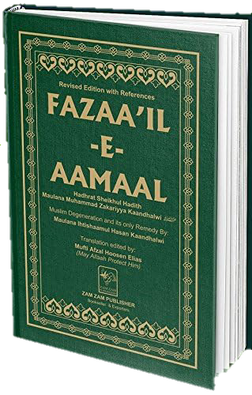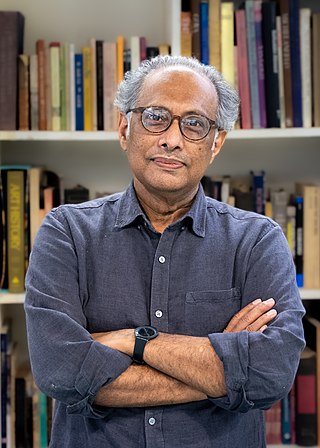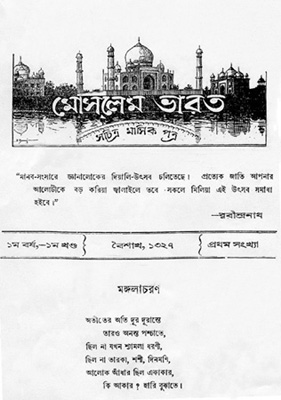External links
- Full text on witness-pioneer.org
- Khutabat: Fundamentals of Islam. Kazi Publications, 1988. ISBN 0-935782-09-5
- Let Us Be Muslims. Kazi Publications, 2003. ISBN 0-86037-158-1
| Author | Sayyid Abul Ala Maududi |
|---|---|
| Publisher | Kazi Publications |
Publication date | 1988 |
| ISBN | 0-935782-09-5 |
Khutabat: Fundamentals of Islam is a book written by Sayyid Abul Ala Maududi. It was originally published in 1988, then later re-translated and published under the title Let Us Be Muslims.
Fundamentalism is a tendency among certain groups and individuals that are characterized by the application of a strict literal interpretation to scriptures, dogmas, or ideologies, along with a strong belief in the importance of distinguishing one's ingroup and outgroup, which leads to an emphasis on some conception of "purity", and a desire to return to a previous ideal from which advocates believe members have strayed. The term is usually used in the context of religion to indicate an unwavering attachment to a set of irreducible beliefs.
Ijma' is an Arabic term referring to the consensus or agreement of the Islamic community on a point of Islamic law. Sunni Muslims regard ijmā' as one of the secondary sources of Sharia law, after the Qur'an, and the Sunnah. Exactly what group should represent the Muslim community in reaching the consensus is not agreed on by the various schools of Islamic jurisprudence. Some believe it should be the Sahaba only; others the consensus of the Salaf ; or the consensus of Islamic lawyers, the jurists and scholars of the Muslim world, i.e. scholarly consensus; or the consensus of all the Muslim world, both scholars and lay people. The opposite of ijma is called ikhtilaf.

Christianity and Islam are the two largest religions in the world, with approximately 2.3 billion and 1.8 billion adherents, respectively. Both religions are Abrahamic and monotheistic, having originated in the Middle East.
Qutbism is an exonym that refers to the Sunni Islamist beliefs and ideology of Sayyid Qutb, a leading Islamist revolutionary of the Muslim Brotherhood who was executed by the Egyptian government of Gamal Abdel Nasser in 1966. Influenced by the doctrines of earlier Islamists like Hasan al-Banna and Maududi, Qutbism advocates Islamic extremist violence in order to establish an Islamic government, in addition to promoting offensive Jihad. Qutbism has been characterized as an Islamofascist and Islamic terrorist ideology.

Kazi Nazrul Islam was a Bengali poet, short story writer, journalist, lyricist and musician. He is the national poet of Bangladesh. Nazrul produced a large body of poetry, music, messages, novels, and stories with themes, that included equality, justice, anti-imperialism, humanity, rebellion against oppression and religious devotion. Nazrul Islam's activism for political and social justice as well as writing a poem titled as "Bidrohī", meaning "the rebel" in Bengali, earned him the title of "Bidrohī Kôbi". His compositions form the avant-garde music genre of Nazrul Gīti.
Muhammad at Mecca is a book about the Islamic prophet Muhammad, specifically about the first phase of his public mission, which concern his years in Mecca until the hijra to Medina. It was written by the non-Muslim Islamic scholar W. Montgomery Watt and published by Oxford University Press in 1953.

Fazail-e-Amaal, authored by Zakariyya Kandhlawi between 1929 and 1964, is a book that primarily consists of treatises from the Fada'il series, originally published in Urdu. Its purpose is to inspire and motivate Muslims in their religious practices by presenting a diverse range of Islamic teachings, stories, and anecdotes. The book's popularity has led to translations in multiple languages, including English and French, establishing it as a major resource for the Tablighi Jamaat, a transnational pietistic movement. Written at the request of Ilyas Kandhlawi, the founder of Tablighi Jamaat, the book was initially named Tablighi Nisab or Curriculum for Tabligh. It is the most popular ongoing publication of Urdu literature in the present era and is extensively read due to its inclusion in the literature of the Tablighi Jamaat. The book's language is appreciated for its simplicity, clarity, and accessibility to readers.
Following is a list of English translations of the Quran. The first translations were created in the 17th and 19th centuries by non-Muslims, but the majority of existing translations have been produced in the 20th and 21st centuries.
Mecca2Medina are a British Islamic hip hop Nasheed group.
Kazi Zafar Ahmad was a Bangladeshi politician of the Jatiya Party, who was the Prime Minister of Bangladesh from 1989 to 1990.

The Satanic Verses controversy, also known as the Rushdie Affair, was a controversy sparked by the 1988 publication of Salman Rushdie's novel The Satanic Verses. It centered on the novel's references to the Satanic Verses, and came to include a larger debate about censorship and religious violence. It included numerous killings, attempted killings, and bombings by perpetrators who supported Islam.
Aisha bint Abi Bakr was a seventh century Arab military commander, politician, muhadditha, and the third and youngest wife of prophet Muhammad.
The Patrol of al-Abwa or Waddan occurred on the 12th of Rajab in the second Hijri year or in Safar of the same year. Muhammad took a force of 70 men and when he reached Waddan, the Quraysh were not present. However, the Banu Damrah met with Muhammad and they established a peace agreement for mutual cooperation and safety. No fighting occurred during this campaign.
The Invasion of Buhran occurred in 3 A.H of the Islamic calendar of the 4th or 5th month. A report had arrived to the Muslims that a formidable force of the Banu Sulaym from Buhran were advancing on Madinah. Muhammad, took 300 men, to Hijaz reaching to Buhran, where the Banu Sulaym fled in panic.
The Patrol of Buwat took place in October 623 or 2 A.H. of the Islamic calendar, in Rabi' al-Awwal. Muhammad went with a force of 200 men in order to raid parties of the Quraysh. Muhammad stayed at Buwat for some time and left without engaging in combat.

Kazimar Periya Pallivasal or Kazimar Big Mosque is the oldest mosque in Madurai city, Tamil Nadu, India constructed in the year 1284AD and continues to be in existence for more than 7 centuries till today. The mosque was founded by Kazi Syed Tajuddin, a descendant of the Islamic prophet Muhammad, who came from Yemen during 13th century and received this land from the King Kulasekara Ku(n) Pandiyan. The mosque which was the first Muslim place of worship in Madurai. The mosque was managed by Syed Tajuddin during his lifetime followed by his children and descendants hereditarily for more than 7 centuries till today. Almost all of Kazi Syed Tajuddin's descendants have lived in the same locality for more than 700 years, and have managed the mosque since then.

Kazi Khaleed Ashraf is a Bangladeshi architect, urbanist and architectural historian. Writing from the intersection of architecture, landscape and the city, Ashraf has authored books and essays on architecture in India and Bangladesh, the work of Louis Kahn, and the city of Dhaka. His various writings on the architecture of Bangladesh have provided a theoretical ground for understanding both the historical and contemporary forms of architecture, while his written and design work on Dhaka advances that city as a "theorem" for understanding urbanism in a deltaic geography. Ashraf and contributing team received the Pierre Vago Journalism Award from the International Committee of Architectural Critics for the Architectural Design publication Made in India. He has also co-authored a number of publications with the architect Saif Ul Haque. Ashraf has recently established an international publication series called Locations: Anthology of Architecture and Urbanism that will present works and features from around the globe.
Mahmoud Mustafa Ayoub was a Lebanese Islamic scholar and professor of religious and inter-faith studies.

The Bangladesh Muslim League is a political party in Bangladesh that traces its origins to the All-India Muslim League, established in 1906.

The Muslim Bharat was a historic literary journal that published from Kolkata in the early 20th century. It published works by notable Bengali authors and poets; such as Abanindranath Tagore, Kalidas Roy, Kaikobad, Qazi Imdadul Haq, Kazi Abdul Wadud, Kumud Ranjan Mullick, Mohitlal Majumdar, Mohammad Barkatullah, Satyendranath Dutta, Sheikh Fazlul Karim, and Syed Emdad Ali.